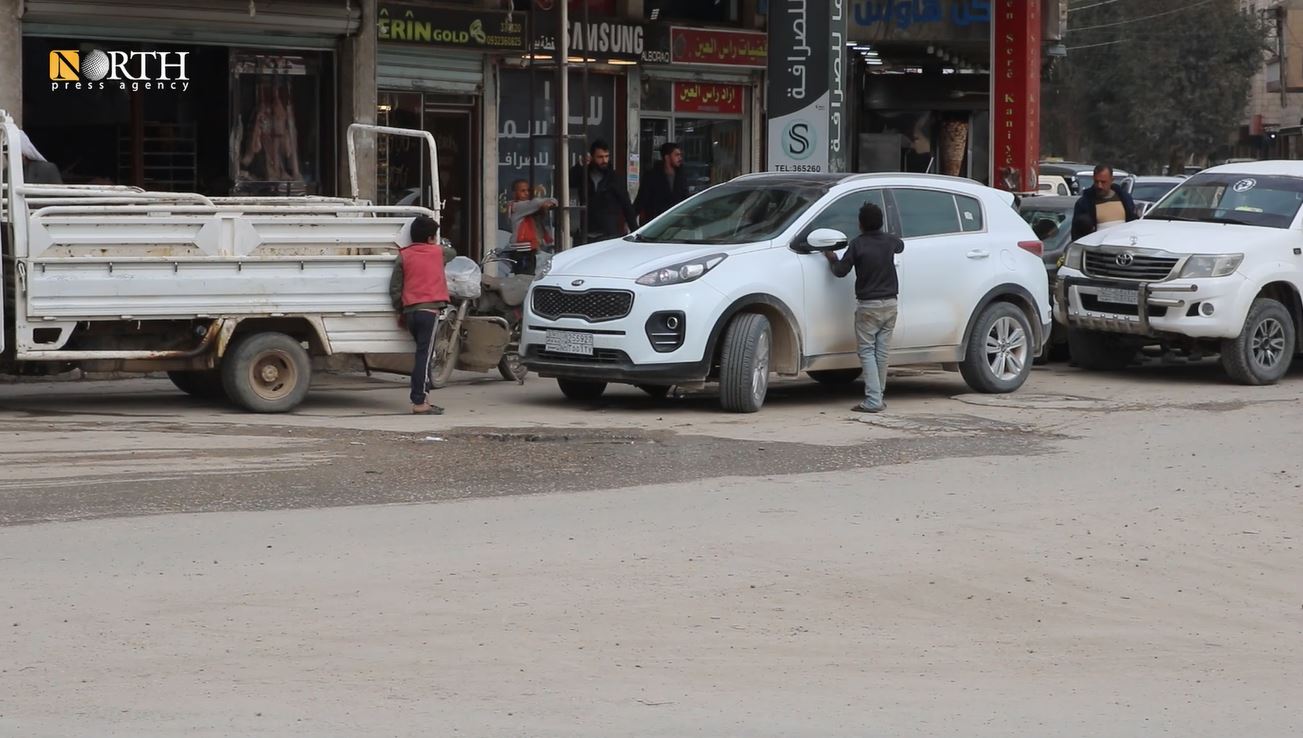Local institutions tackle issue of child beggars in Syria’s northeast
HASAKAH, Syria (North Press) – Difficult living and material conditions push families residing in Hasakah, northeast Syria, to resort to begging as a livelihood. In extreme cases, these families may push their children to beg, such as when the breadwinner of the family passes away or falls ill.
14-year-old Hammoudi Ahmed, from al-Nashwa neighborhood in Hasakah, begs and collects food leftovers from the garbage. “I have three young brothers and my father is disabled. We cannot live if I do not resort to this,” he explained. “There is no other way but begging to secure a living for me and my younger brothers.”
The causes of this phenomenon vary, and each child has a different story, but most of them suffer from extreme poverty and lack a family breadwinner. The events surrounding ten years of war in Syria further added to the stresses that cause this phenomenon, Hasakah residents say.
A shopkeeper with a store in Hasakah’s Agri Roundabout told North Press, “We notice that some people exploit these children; they collect a number of them and spread them in a certain area and then bring them together at the end of the day.”
He added, “It is imperative to find a solution to this phenomenon and hold accountable those who exploit them to make money, and there is a distinct possibility that they only make a small portion in exchange for their begging.”
The owner of a popular restaurant in Hasakah, who went by A.M., said, “With the beginning of each day when the shop opens and customers start coming, these children come to beg from customers. The strange thing is that we see the same children every day, as if there is a gathering between them.”
Marwa al-Abdullah, the co-chair of the Child Protection Office in Hasakah, told North Press that “the phenomenon of begging is a negative and rejected manifestation, despite its escalation in recent years, especially in the years of war.”
She added, ” About 60% of the children whom we spoke with and asked what drives them to beg…said that it is the parents who force them to beg, especially the father.”
Al-Abdullah explained, “Our future projects, such as the Child Protection Office, safeguard orphans and their care, open shelters for beggar children, reintegrate them into society, complete the educational chain for them, support needy families, and enact laws that punish everyone who sends and forces their children to beg,”
She added, “we are also working to educate parents not to encourage children to through the distribution of brochures, as the phenomenon of begging leads to other negative consequences such as smoking, drugs, and other negatives.”

